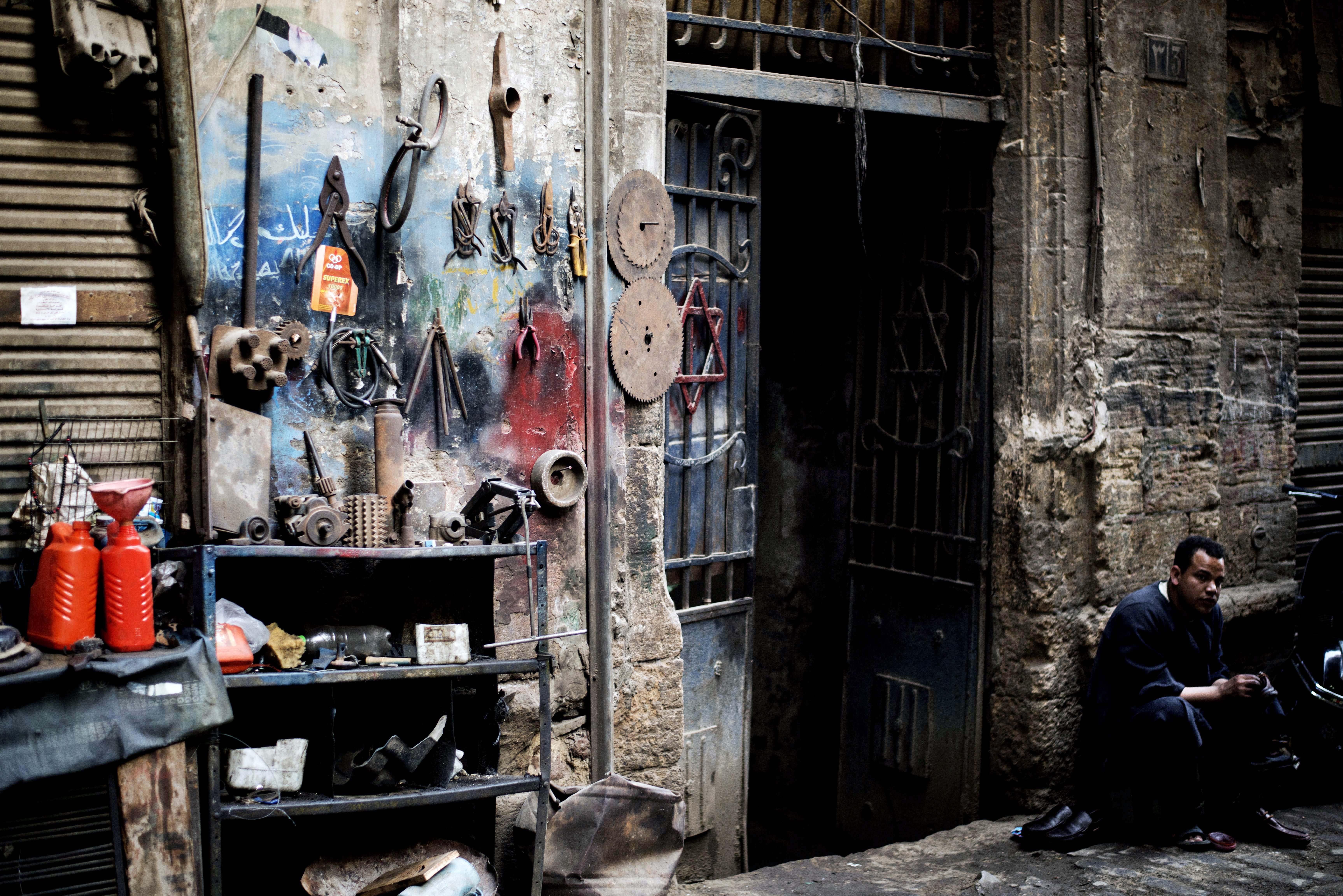CAIRO: The warren of slum alleys is called the Jews’ Quarter, but no Jews live there. The ancient synagogue still stands, but its roof is gone. The government is renovating it, but is doing so at a moment when anti-Israel feeling is running especially high in Egypt.
The Ben Maimon synagogue exemplifies this country’s conflicted relationship with its Jewish past.
The Jewish community that once flourished in the Arab world’s most populous nation left behind physical traces ranging from grand temples in central Cairo and Alexandria to a holy man’s humble grave in a Nile Delta village. But the modern-day Egyptian view of those relics lies within a narrow spectrum ranging from disinterest to outright hostility.
On a recent morning, teenage workers were busy lugging planks across what was once the Ben Maimon synagogue’s sanctuary and pumping out greenish water flooding the dirt floor of an adjacent room.
The bimah, the lectern where the Torah scroll was once read, was visible under plastic sheeting, and a niche in the wall facing toward Jerusalem was all that remained of the elaborate wooden ark that held the scrolls.
Not everyone was pleased about the renovation.
“We are a nation that doesn’t have enough to eat and doesn’t have clean water, grumbled Mahmoud Fahim, a Muslim who runs a clothing store in the Jews’ Quarter. “Why are we paying for these temples to be developed?
He called it “a superficial act to make Egypt look good to the West and to Israel.
Fahim was touching on a sore point – the failed bid last month by Farouk Hosni, the Egyptian culture minister, to be elected head of UNESCO, the UN culture agency. The minister blamed his defeat on a Jewish conspiracy “cooked up in New York.
Egypt was the first Arab country to sign a peace treaty with Israel. Though the peace has always been cool, the relationship is going through an especially rough patch because of the aftermath of Israel’s bloody offensive in Gaza, compounded by the UNESCO affair and Hosni’s remarks.
Egypt’s Jewish community, which dates back millennia and in the 1940s numbered around 80,000, is down to several dozen, almost all of them elderly. The rest were driven out decades ago by mob violence and state-sponsored persecution tied in large part to the Israeli-Arab conflict, a story repeated across the Arab world.
Egypt and Israel fought a war every decade from the 1940s to the 1970s until the 1979 peace treaty was signed.
Despite that treaty, Egyptian sentiment remains deeply unfriendly to Israel, and anti-Semitic stereotypes still occasionally appear in the Egyptian media.
Some government officials take a more tolerant line.
“Jewish sites are an important part of our heritage, and we place as much importance on the maintenance and development of the Jewish temples as we do to the mosques and the churches in Egypt, said Zahi Hawass, Egypt’s chief archaeologist and the official responsible for fixing up the synagogue.
The repairs got under way at around the same time that Egypt started lobbying for Hosni to get the UNESCO job. Some suggested the renovation was an attempt to improve the image of an official whose candidacy to become the face of cultural preservation worldwide was complicated by his 2008 statement to Egypt’s parliament threatening to personally burn Israeli books.
Hosni apologized for that statement and Israel dropped its opposition to his election, but he ended up losing all the same, to a Bulgarian diplomat, whereupon he blamed Jewish pressure.
“It is the Israelis who caused Farouk Hosni to lose the bid in UNESCO, so I don’t know why he tries to please them by developing their temples, said Sayed El-Iraqi, who runs a toy store near the synagogue.
Hawass, the antiquities official, said the renovation was never connected to the UNESCO bid and would continue.
Jewish sites exist in the Mediterranean city of Alexandria, still home to a grand synagogue, and in the Nile Delta village of Nekraha, where Jewish worshippers make a yearly pilgrimage to the grave of Abu Hatzira, a 19th century rabbi and healer.
Most sites, however, are in the capital, and more than monuments just to the Jews, they are reminders of a more cosmopolitan Middle East, when Cairo and other Arab cities housed a jumble of ethnic minorities in the midst of Muslim majorities.
The best-known synagogue still standing is Ben Ezra, located among Christian churches and souvenir stores. The synagogue, with its marble pillars and ceiling painted in muted greens and reds, is believed to date to 882 AD.
The thousands of documents the Jews stored there over the centuries were discovered in the late 1800s and became famous as the Cairo Genizah, one of the most valuable troves of historical documents ever found.
Today the defunct house of prayer is open as a tourist site. A man stands in front of a dusty glass case at the back, offering yarmulkes and postcards for sale.
On a downtown Cairo street stands the monumental synagogue known as Shaar Hashamayim, the “gate of heaven, a structure of gray stone with an interior of carpets and gold-painted walls. Sidewalk barricades and a dozen armed policemen give it the appearance of a besieged fortress.
In the 1940s, upper-class Jews would fill its pews on the Sabbath. On a recent Sabbath it was empty except for a Muslim caretaker.
Nadia Haroun Silvera, 55, a lawyer and one of Egypt’s last Jews, remembers her grandmother leading her in as a child. She said no guards were needed then.
“They should take care of all the Jewish synagogues. It’s a part of Egyptian history, she said. -Associated Press Writer Joseph Freeman contributed to this report.

